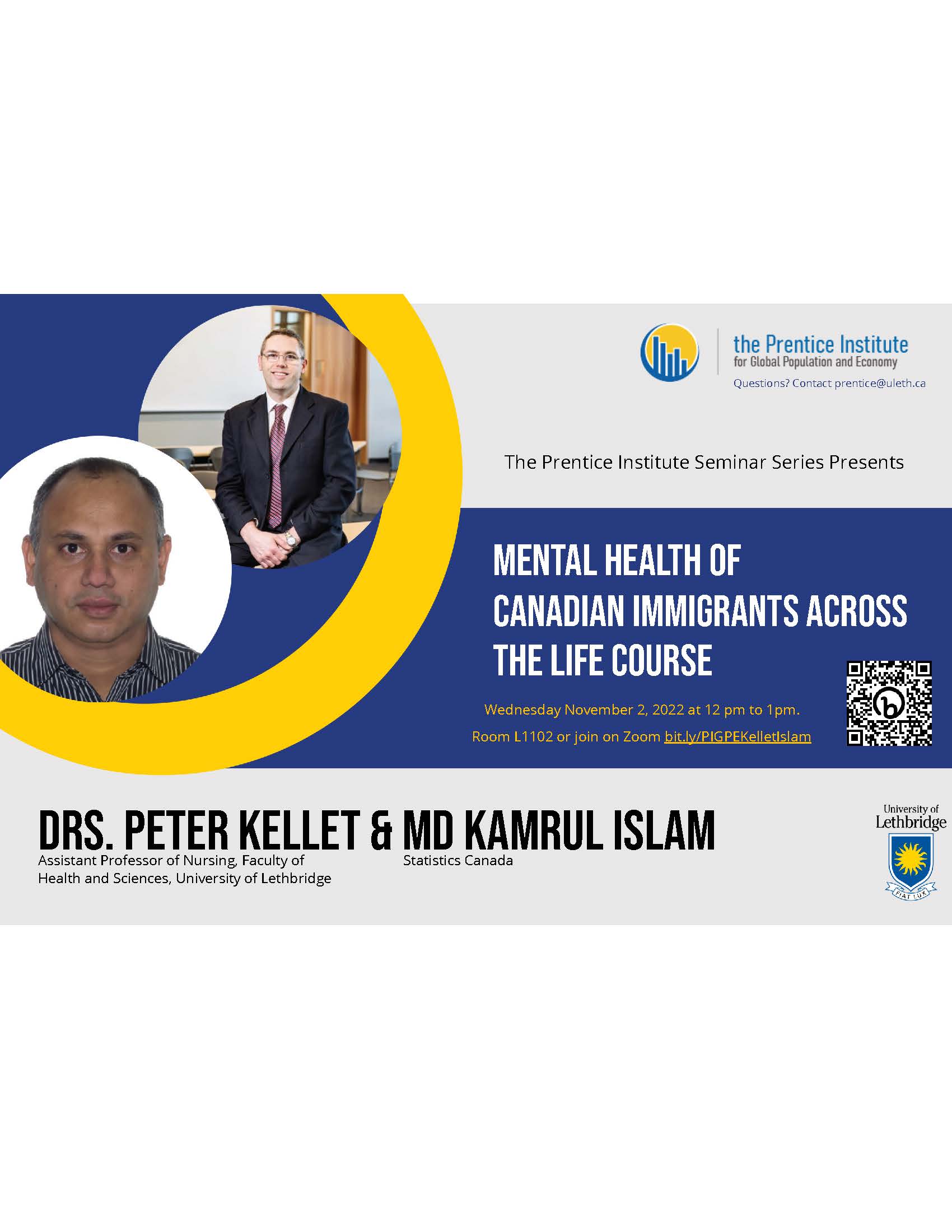This event is from the archives of The Notice Board. The event has already taken place and the information contained in this post may no longer be relevant or accurate.

Drawing on the life course perspective, this study advances earlier research by examining mental health among five age cohorts of immigrants — youth, young adults, middle-aged adults, older adults and older old adults — and evaluating the extent to which their mental health varies by gender across the life course. Cross-sectional pooled data from six cycles of the Canadian Community Health Surveys (CCHS), 2007-2008 to 2017-2018 were used. The mental health status of 106,354 immigrants ages 15 years and older was analyzed calibrating multivariate logistic regression. Findings showed that male immigrants ages 15-24 years were 78 per cent more likely to report good mental health than female immigrants of the same age cohort. Similarly, male immigrants ages 65-79 were also more likely to report good mental health than female immigrants ages 15-24 years. Comparison of immigrants’ mental health within each stage of the life course by gender revealed that, among younger age cohorts (15-24 years, 25-44 years, and 45-64 years), male immigrants were more likely to report good mental health than female immigrants. But among older age cohorts (65-79 years and 80 years and older), male immigrants were less likely to report good mental health than female immigrants. The mental health status of immigrants was also found to vary significantly by gender in each stage of the life course.
Free event
Contact:
Patricia Macklin | patricia.macklin@uleth.ca | ulethbridge.ca/prentice-institute/november-2-2022